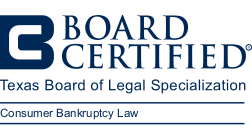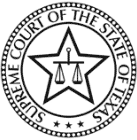What Can You Do About Creditor Harassment?
 It is late in the evening and you receive a phone call from an unknown number. Concerned, you pick up. On the other line is a debt collector calling about a debt whose repayment you have been trying to negotiate with the creditor. They start angrily threatening that they will come and impound your car tomorrow to pay back the debt and will call your employer to tell them that you are a deadbeat. You hang up, but you keep getting repeated calls from this number. If this scenario sounds familiar, you have been the victim of creditor harassment. This type of harassment is illegal, and there are ways you can protect yourself. An experienced Montgomery County, TX creditor harassment attorney can help.
It is late in the evening and you receive a phone call from an unknown number. Concerned, you pick up. On the other line is a debt collector calling about a debt whose repayment you have been trying to negotiate with the creditor. They start angrily threatening that they will come and impound your car tomorrow to pay back the debt and will call your employer to tell them that you are a deadbeat. You hang up, but you keep getting repeated calls from this number. If this scenario sounds familiar, you have been the victim of creditor harassment. This type of harassment is illegal, and there are ways you can protect yourself. An experienced Montgomery County, TX creditor harassment attorney can help.
What Laws Protect You Against Creditor Harassment?
State and federal law protects you against creditor and debt collector harassment. The Fair Debt Collection Practices Act (FDCPA) prohibits debt collectors from harassing you. The Texas Finance Code Chapter 392 also prohibits threatening or abusive behavior from creditors and debt collections.
What Type of Creditor Harassment Is Forbidden by Law?
Creditors are not permitted to harass or abuse you. Examples of prohibited actions that are considered creditor harassment include:
-
Making repeated phone calls, or sending other types of electronic communication such as emails or even social media messages
-
Calling you names
-
Threatening to harm you
-
Publishing your name in a list of outstanding debtors
-
Not identifying themselves by name
-
Accusing you of a crime
-
Falsely claiming that the call is from a government source
-
Falsely accusing you of fraud
-
Threatening to take your property without proper procedure
-
Lying about the debt or other important facts
What Can You Do When You Are a Victim of Creditor Harassment?
You have options for defending yourself against creditor harassment. First of all, make sure that you are documenting every interaction and instance of creditor harassment. In Texas, you can file an official complaint with the Texas attorney general. Such complaints can and often do lead to lawsuits from the state against the creditor or debt collector. You can also file a complaint with the Federal Trade Commission (FTC), the consumer protection agency of the federal government.
Additionally, you can send a cease and desist letter to a creditor, warning them that they are violating your rights under the FDCPA. If that does not work, or if you believe the harassment has caused you harm, you can sue under the FDCPA to recover for actual harm such as financial losses, lost wages, emotional distress, medical bills, and other damages you suffered as a result of the illegal harassment.
Call a Montgomery County, TX Creditor Harassment Attorney
If you are going through hard financial times, creditor harassment can not only add to your stress but it is prohibited by law. The experienced Brazoria, TX creditor harassment attorney at The Fealy Law Firm, PC can review your case, explain your rights, and guide you on what you can do to stop creditor harassment. Call us for a free consultation at 713-526-5220.












